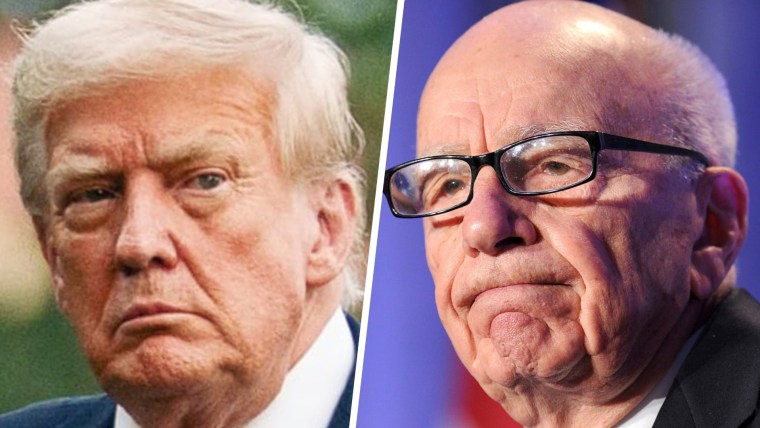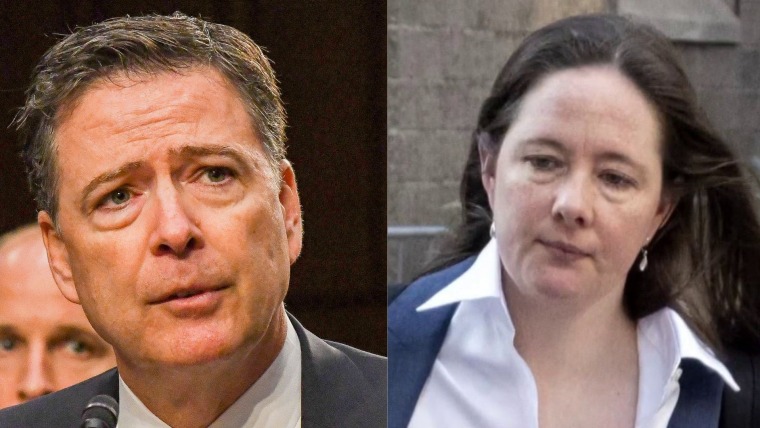On Wednesday, veteran federal prosecutor Maurene Comey was, as she later wrote in an email to former colleagues, fired “without reason” by the Justice Department.
Comey, who was an assistant U.S. attorney in the Southern District of New York for nearly a decade, is best known for her involvement in several high-profile sex crimes cases, including the prosecutions of the late millionaire sex offender Jeffrey Epstein; Epstein’s co-conspirator, Ghislaine Maxwell; and music mogul Sean “Diddy” Combs.
And notwithstanding the Combs verdict — which critics blasted as an “embarrassment” for SDNY given he was acquitted of the most serious charges — Comey was highly regarded in that office for her strong trial and investigative skills and her leadership of the public corruption and organized crime units, former colleagues told The New York Times.
So why exactly was she fired?

While the letter terminating her employment reportedly does not outline the Justice Department’s reasons, citing only the president’s Article II powers, none of her performance, professional conduct or management style appears to have been at issue. After all, the Times has reported that such terminations are not only exceedingly rare but have typically been carried out by the head of the office. And here, interim SDNY U.S. Attorney Jay Clayton was blindsided by Comey’s firing, the Times reported, citing two people with knowledge of the matter.
Rather, the real explanation could have little to do with Comey herself and more to do with the Trump administration’s open weaponization of federal employment and/or its desire to quell the ongoing revolt within MAGA circles over the so-called Epstein files. (The Justice Department did not immediately respond to MSNBC’s request for comment.)
Specifically, one possibility is that Comey was fired because of her family history: She is the daughter of James Comey, a former SDNY U.S. attorney who served as FBI director until he was fired by President Donald Trump in 2017.
Today, the elder Comey — who has long been persona non grata in Trump world — is under criminal investigation by the Justice Department, the details of which remain unclear. ABC News reported, citing multiple sources, that Trump has privately vented about having a Comey working in his current administration. Asked about Maurene Comey’s firing on Thursday, White House press secretary Karoline Leavitt said only, “This was a decision made by the Department of Justice.”
Yet another possible explanation and one floated by the Times — that Comey is being “set up as a scapegoat” as the Trump administration seeks to move past the Epstein scandal — is perhaps even more problematic. Why? Because in addition to being improper, it’s nonsensical.
Although Trump is now falsely characterizing the Epstein files as a creation of Democratic presidents, James Comey and others, Epstein was indicted in July 2019, during Trump’s first term. The files assembled during the FBI and DOJ investigation were prepared by agencies under Trump’s ultimate supervision.
By centering the victims and their needs, didn’t Comey do what those focused on ending child sex abuse would want?
To the extent that Trump appointees, after years of feeding Epstein-related conspiracies, ultimately discovered the files were, as Trump said on Tuesday, “sordid but boring,” Maurene Comey is hardly to blame. Nor is she remotely culpable for the alleged 2003 birthday letter to Epstein bearing Trump’s name, as described by reporting in The Wall Street Journal on Thursday. (Trump has denied writing the letter and called the Journal report “fake.”) The timing of that report, however, and Trump’s knowledge by Tuesday that it was coming further suggests Comey’s firing this week was a politically motivated distraction, not a deserved disciplinary action.
But more importantly, within a Republican Party and conservative media ecosphere fixated on allegations of child sex trafficking and abuse, Comey should be lauded, not blamed.
After Epstein’s death in August 2019, federal judge Richard Berman held a hearing on the DOJ’s motion to dismiss the case, which is standard after a defendant dies. But he also did something less typical: He allowed Epstein’s victims to have their say — and with the full support of the prosecutors involved.
Comey, speaking for the government, noted at the time that while she did not how many victims planned to speak or what they would say, they had tried “to keep as many victims as we are aware of up to date about the ongoing case and about any developments,” had been in touch or attempted to reach out to “all known victims,” and would “continue to provide services and offer services to any of the victims, even after the indictment is dismissed,” according to a court transcript.
By centering the victims and their needs, didn’t Comey do what those focused on ending child sex abuse would want?
And when Epstein co-conspirator Ghislaine Maxwell was tried in December 2020, who was the prosecutor who systematically dismantled the defense’s characterization of Maxwell and Epstein’s victims as money-grubbing, inconsistent liars? Comey, whose rebuttal was a paean to believing the teens-turned-women who testified. Noting the defense’s focus on the supposed lack of paper evidence, Comey reminded the jury of the trauma endured by each of the four women from whom they heard and that the women themselves were the central proof:
The victims are the evidence. Their testimony, their consistent accounts of Maxwell and Epstein and how they operated, that’s how you know they were in those massage rooms. People who prey on children do not leave behind documents admitting to what they did. The defendant was not walking out of those massage rooms writing a memo to herself saying, today I touched Jane’s breasts. But you do have powerful corroboration from three different victims who each told you compellingly similar accounts of their experiences, three different victims who remember the defendant touching their breasts, three different victims describing how the defendant used massage as a technique to move into sexual abuse.
Comey has been a steadfast, strategic advocate for those victims and others, even where their need for privacy and security was inconvenient for a curious public and press. For example, in 2023, she supported the FBI’s withholding of Epstein-related documents requested by a media outlet under the Freedom of Information Act, noting in an affidavit, among other objections, that some of the records sought would “reveal the names, images, and identifying information of child victims and child witnesses within the investigation into Epstein’s sexual abuse of minors” in violation of the federal law protecting child victims.
Nothing we have seen so far from the DOJ, nor any of the potential politically motivated explanations, justifies firing one of the staunchest advocates for holding Epstein and other sex offenders accountable.

